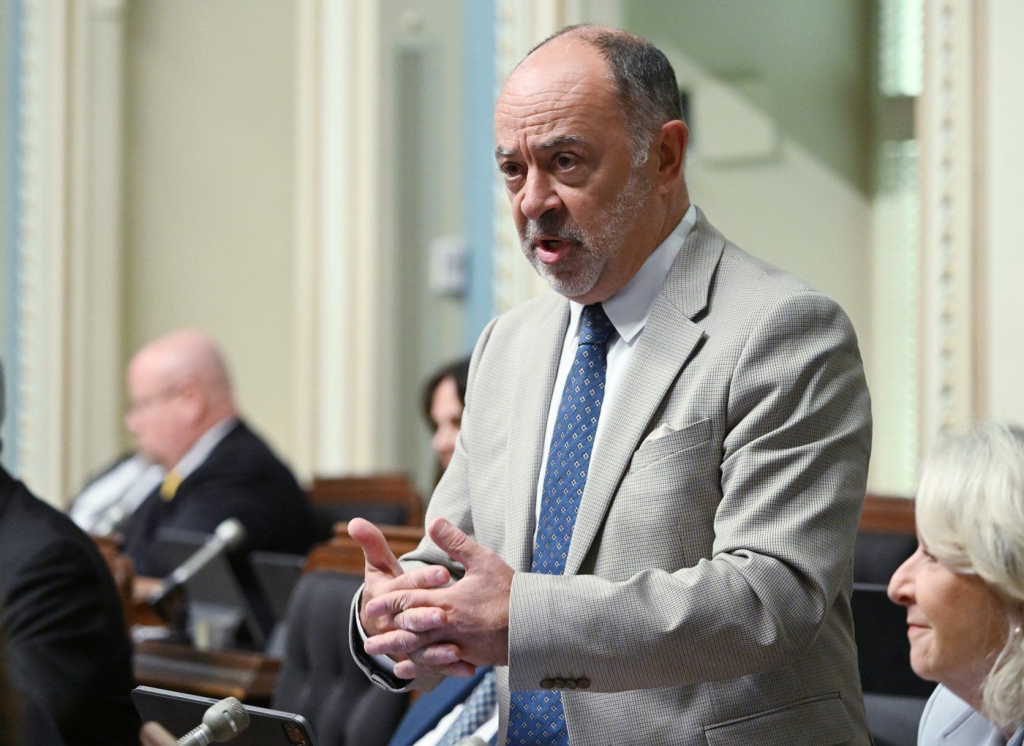Quebec postpones ending private health agencies in certain regions

Posted August 23, 2024 10:37 am.
The end of the use of private health agencies, which was to apply this fall, has been postponed until next spring in urban centres, Health Minister Christian Dubé’s office announced Thursday.
The new deadline to end the use of private agencies for health care establishments in urban areas has been postponed to the end of March 2025, rather than Oct. 20, 2024.
The impacted areas include Quebec City, Montreal, Chaudière-Appalaches, Laval and Montérégie.
Last week, the Fédération des médecins spécialisé du Québec (FMSQ), which represents 10,000 specialist physicians, called for the deadline to be pushed back. Otherwise, service disruptions would be inevitable, even in Montreal, the union said.
On X, FMSQ Present Dr. Vincent Oliva welcomed Minister Dubé’s decision.
“This is in line with what we were asking for and demonstrates the importance of consulting health care professionals who know the reality on the ground and for whom safety and access to care are priorities,” he said.
The Collège des médecins du Québec (CMQ) also said it was satisfied with Dubé’s announcement and believes that he will be able to pursue his objective “while introducing flexibility into the terms.”
“This should reduce the direct impact of staff shortages on patients in some regional hospitals, ensure better continuity of care and give caregivers a break,” the CMQ wrote on X.
Opposition parties unhappy
For other regions, the deadline remains unchanged. The deadline is set for Oct. 18, 2026 for Bas-Saint-Laurent, Outaouais, Abitibi-Témiscamingue, Côte-Nord, Nord-du-Québec, Gaspésie-Îles-de-la-Madeleine and Nunavik.
The deadline is Oct. 19, 2025 for Saguenay-Lac-Saint-Jean, Mauricie and Centre-du-Québec as well as Estrie, Lanaudière and the Laurentians.
Parti Québécois health critic and MNA for Îles-de-la-Madeleine Joël Arseneau deplored the lack of consideration for other regions.
“This step back from the agencies was predictable, but only pushes the problem back. Once again, the minister is taking care of the big centres, but doing nothing for remote regions like the Côte-Nord where his mobile team has still not been deployed,” he said on X.
Québec solidaire health spokesperson Vincent Marissal was also critical of Dubé’s decision.
“It is urgent to get rid of the agencies, but this is only possible if nurses return to the public sector. Not only is the CAQ failing at this task, but it is continuing to develop the private sector. We are moving backwards!” Marissal wrote on X.
“The objective of ending the agencies remains the same, but the situation does not currently allow it,” reads a press release from the health minister’s office.
So far this year, more than 3,800 people from private agencies have been hired in the public network. According to the CAQ, the six-month delay will allow for more staff to be recruited to strengthen the public network and give the new Santé Québec agency more time to organize itself.
“We believe it is important to listen to staff on the ground and our partners who are asking us to be flexible to ensure a more coordinated transformation. We are adapting, for patients and staff. It is the right thing to do. We are pursuing our objective, while continuing to provide safe care to the population,” Dubé in a press release.
In addition, living environments will also benefit from better flexibility. These types of establishments “must have minimum staff thresholds in place and rely more heavily on independent labour.”
The new measures affect private establishments under contract and those not under contract, private residences for seniors and intermediate residences located in urban areas.
—
The Canadian Press’ health content is funded through a partnership with the Canadian Medical Association. Editorial choices are solely the responsibility of The Canadian Press.
–This report by La Presse Canadienne was translated by CityNews



